As you get behind the wheel of your Honda CR-V, you’re greeted by a dashboard filled with various warning lights. But what do they all mean? You might be familiar with the check engine light, but what about the others?

From brake system warnings to advanced safety features, each light is designed to alert you to potential issues that could impact your safety on the road. By understanding what each light represents, you can take proactive steps to prevent accidents and costly repairs. But which lights require immediate attention, and which can wait?
Quick Navigation
Brake System Warning Lights Explained
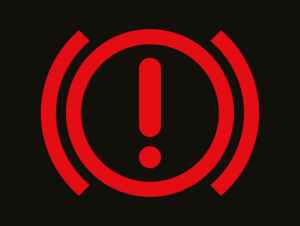
Red Brake Warning Light
When you see a red brake warning light on your Honda CR-V dashboard, it indicates either the parking brake is applied or the brake fluid level is low. This warning requires immediate attention to prevent brake failure and potential accidents.
Red and Amber Brake Warning Lights Together
If the red brake warning light is flashing or constant, along with an amber brake warning light, you should attempt to release the parking brake manually or automatically.
Amber Brake Warning Light Alone
When the amber brake warning light appears alone, avoid using the parking brake as it may not release properly, posing a safety risk.
Red Brake Warning Light with EB Warning Light
A combination of the red brake warning light and the EB warning light signals an increased risk of locking wheels under heavy braking, necessitating prompt inspection and repair.
Engine and Performance Indicators
Monitoring Your Engine and Performance
Essential signs of your Honda CR-V’s engine and performance are tracked through a series of dashboard warning lights, ensuring you can address issues promptly.
Malfunction Indicator Lamp (MIL)
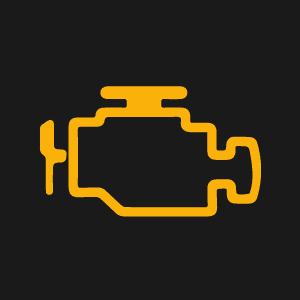
The MIL warns of poor emissions or an engine misfire, signaling a need for diagnostic attention to maintain optimal performance and compliance with emissions standards.
Oil Pressure Warning Light

The oil pressure warning light indicates low oil levels or pressure, which may result in oil leaks or engine damage if not addressed immediately.
Battery Warning Light
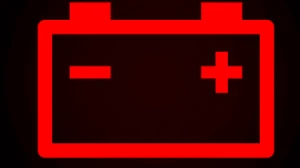
The battery warning light alerts you if your battery is no longer being charged, indicating potential issues with the alternator or charging system.
Low Fuel Warning Light
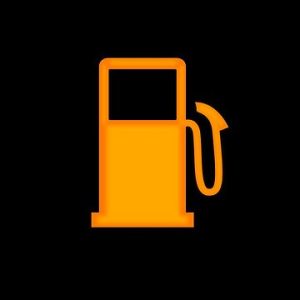
The low fuel warning light signals that your fuel is running low, with approximately 1.76 imperial gallons remaining, reminding you to refuel soon to avoid stalling.
Safety and Security Alerts
Monitoring Safety and Security Systems
Your Honda CR-V’s safety and security systems are tracked through dashboard warning lights, providing critical alerts to help prevent accidents and ensure your well-being on the road.
Airbag Warning Light

The airbag warning light indicates a problem with the supplemental restraints system, signaling potential airbag faults that require immediate attention for safety.
ABS Warning Light
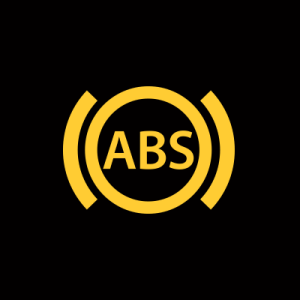
The ABS warning light means the anti-lock braking system is no longer functioning. Prompt inspection is necessary to maintain braking efficiency and avoid accidents.
VSA Warning Light
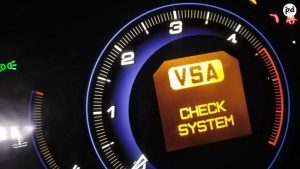
The VSA warning light illuminates when there’s an issue with the Vehicle Stability Assist system, which is essential for preventing skidding and loss of traction.
Importance of Attention to Warning Lights
By addressing these safety and security alerts promptly, you can ensure the safety of your passengers and take all necessary precautions for a secure driving experience.
Tyre Pressure and Auto Idle Issues
Importance of Tyre Pressure Monitoring
Your Honda CR-V’s tyre pressure monitoring system (TPMS) is essential for maintaining performance and safety. After adjusting tyre pressures, or changing or rotating tyres, the TPMS must be reset or calibrated. Failure to do so can result in inaccurate readings.
TPMS Warning Light
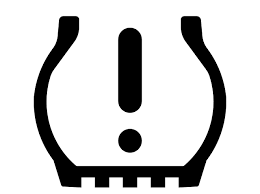
When the TPMS warning light illuminates, it’s crucial to perform tyre pressure calibration to ensure optimal pressure, enhancing safety, fuel efficiency, and tyre longevity.
Auto Idle Stop System
The auto idle stop system can experience issues if not properly maintained.
Auto Idle Stop Warning Light
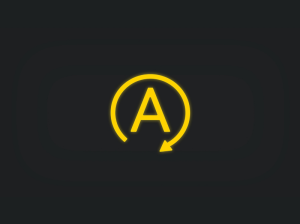
If the auto idle stop warning light flashes in amber, it signals the need for troubleshooting to identify and fix underlying problems, ensuring the system operates smoothly.
Road Departure and Lane Keeping
Advanced Safety Features for Hazard Monitoring
Your Honda CR-V’s advanced safety systems actively monitor the road for potential hazards, helping to keep you safe.
Road Departure Mitigation System
This system uses radar and a camera mounted at the top of the windscreen to track your vehicle’s position on the road. If you drift out of your lane without signaling, the system activates a warning light and applies gentle steering correction to guide you back.
Lane Departure Prevention

The lane departure prevention feature minimizes the risk of accidents caused by unintentional lane drifting, enhancing safety during long drives or in heavy traffic.
Road Departure Mitigation Warning Light
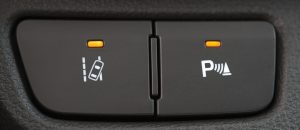
If the system detects a fault, the road departure mitigation warning light will remain illuminated until the issue is addressed, signaling the need for prompt inspection and repair.
Collision Mitigation and Blind Spots
Collision Mitigation Braking System (CMBS)
The CMBS in your Honda CR-V helps prevent or reduce the severity of collisions by alerting you to potential hazards. Using radar and camera technology, it detects potential collisions and provides visual and audible warnings. If you don’t respond, the system can automatically apply the brakes to minimize or prevent impact.
Blind Spot Detection
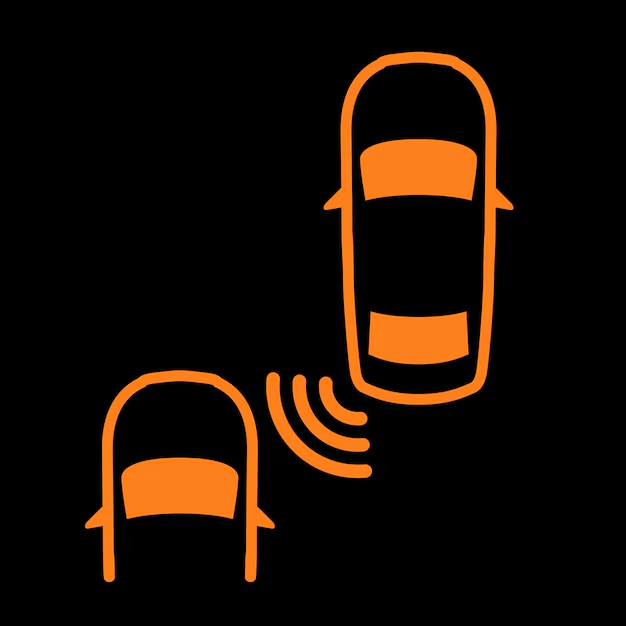
Blind spot detection monitors your vehicle’s blind spots, alerting you to the presence of vehicles in those areas. This system enhances your awareness, particularly during lane changes or merging.
Combined Safety Features for Enhanced Protection
These systems work in tandem to offer an additional layer of safety, ensuring a safer driving experience by reducing collision risks and improving situational awareness.
Engine and Coolant Temperature Warnings
Importance of Monitoring Engine and Coolant Temperatures
Monitoring your Honda CR-V’s engine and coolant temperatures is essential to prevent overheating and potential engine damage.
Engine Coolant Temperature Warning Light
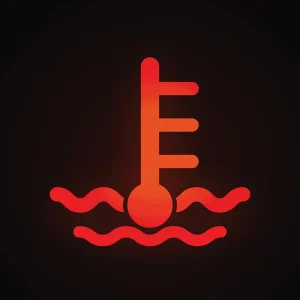
If the engine coolant temperature warning light comes on, it indicates that your engine is overheating. Common causes include low coolant levels, a faulty thermostat, or a malfunctioning radiator fan.
Immediate Actions for Overheating
When this warning light appears, pull over to a safe location and turn off the engine immediately to avoid further damage.
Regular Coolant Level Checks
Ensure your coolant level is at the recommended level by performing regular checks. Always refer to your owner’s manual for detailed instructions on checking coolant levels and addressing overheating issues.
Driver Assistance and Safety Features
Enhancing the Driving Experience
Your Honda CR-V is equipped with advanced driver assistance and safety features designed to alert you to potential hazards and enhance your driving experience.
Driver Alert System
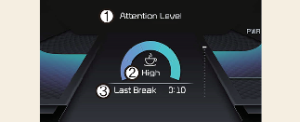
The Driver Alert system detects signs of drowsy driving and notifies you to take a break, ensuring you stay alert and safe on the road.
Real-Time AWD with Intelligent Control System
This safety feature ensures your vehicle remains stable and in control. If a fault is detected, a warning light will appear, and the system will default to front-wheel drive mode to maintain functionality.
Integrated Safety and Assistance
These advanced features work together to provide a safer, more secure, and enjoyable driving experience, giving you peace of mind on every journey.
Immobiliser and Other System Alerts
Importance of System Alerts
While enjoying the advanced safety features of your Honda CR-V, it’s essential to remain attentive to immobiliser and other system alerts that ensure your vehicle’s security and performance.
Immobiliser Warning Light
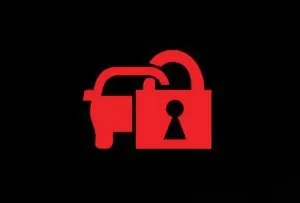
The immobiliser warning light activates when the system fails to recognise the key code information. This prevents unauthorized access and enhances vehicle security.
Keyless Access Warning Light
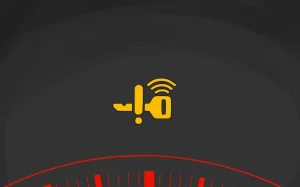
The keyless access warning light indicates a fault with the keyless access or keyless starting system. Issues such as code recognition errors can also trigger this alert.
Maintaining Security and Performance
By staying aware of these alerts and addressing them promptly, you can ensure your Honda CR-V remains secure and operates smoothly, avoiding potential disruptions.
Maintenance and Servicing Reminders
Importance of Regular Maintenance
Staying on top of maintenance and servicing is essential for keeping your Honda CR-V running smoothly and efficiently, ensuring its longevity and reliability.
Built-In Maintenance Reminder System
Your CR-V features a built-in system to notify you of upcoming maintenance:
- Service Spanner Warning Light: This appears when a service is required in less than 10 days or if it’s due soon or overdue.
- 30-Day Service Reminders: Alerts you to service items needed within the next 30 days, allowing ample time to plan.
Benefits of Addressing Reminders
By adhering to these reminders, you can avoid costly repairs and maintain peak vehicle performance.
Ensuring a Reliable Driving Experience
Prioritize your CR-V’s maintenance needs to ensure a safe, efficient, and reliable driving experience every time you hit the road.
Brake System Warning Lights Explained
Electronic Parking Brake Warning
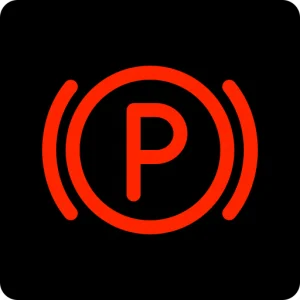
Illuminates when the automatic parking brake system malfunctions. Manual release may still function but parking on inclines should be avoided until system is repaired.
Brake System Overheat Warning
Indicates excessive brake temperature from prolonged use. Allow brakes to cool before continuing – avoid heavy braking on steep descents.
Engine and Performance Indicators
Turbocharger Boost Warning
Specific to turbo models, signals boost pressure anomalies. Reduced power and potential turbo damage may occur if ignored – have system diagnosed.
Reduced Power Mode Warning

Indicates engine has entered limp mode to prevent damage. Performance will be limited – avoid hard acceleration and seek immediate diagnosis.
Safety and Security Alerts
Forward Collision Warning System Alert
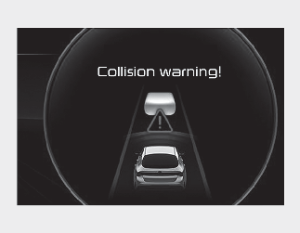
Flashing light warns of imminent frontal impact. The system may automatically apply brakes if no driver response is detected.
Lane Keeping Assist System Warning
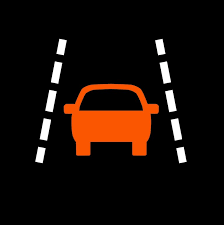
Indicates system malfunction preventing automatic steering corrections. Manual lane discipline required until repaired.
Tyre Pressure and Auto Idle Issues
Run-Flat Tyre Indicator
Specific to models with run-flat tyres, shows puncture detected. Limited mobility possible but immediate tyre inspection/replacement recommended.
Auto Start-Stop System Warning
Indicates fault with engine stop/start function. System will remain inactive to prevent battery drain until repaired.
Road Departure and Lane Keeping
Adaptive Cruise Control Warning
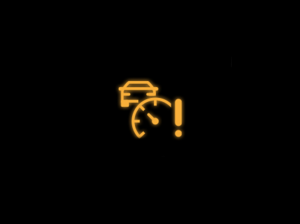
Signals radar or camera obstruction preventing system operation. Clean sensors and check for obstructions to restore functionality.
Traffic Sign Recognition Fault
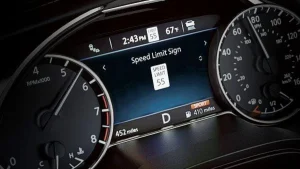
Indicates system unable to detect road signs. Speed limit displays may be inaccurate until camera vision is restored.
Collision Mitigation and Blind Spots
Blind Spot Monitoring Warning
Alerts to system fault detecting vehicles in adjacent lanes. Manual shoulder checks become essential until repaired.
Rear Cross Traffic Alert Warning
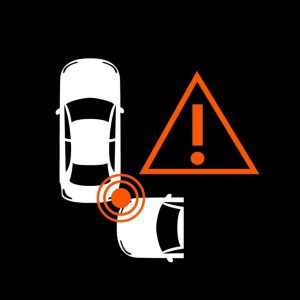
Shows malfunction when reversing. The system may not detect approaching vehicles – check surroundings carefully.
Engine and Coolant Temperature Warnings
Engine Oil Level Warning
Indicates critically low oil level. Stop immediately and top up oil to prevent severe engine damage.
Coolant Level Warning Light
Alerts to low coolant reservoir level. Check for leaks and refill with proper coolant mixture to prevent overheating.
Driver Assistance and Safety Features
Driver Attention Monitor Warning
Coffee cup symbol appears when detecting drowsy driving patterns. Take a break if light persists for safety.
Hill Descent Control Warning
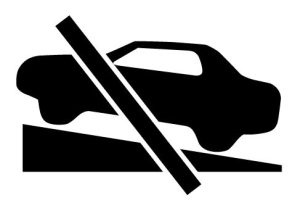
Indicates system malfunction for steep descents. Manual brake modulation required on downhill slopes.
Immobiliser and Other System Alerts
Smart Key Battery Warning

Flashing light indicates low key fob battery. Replace CR2032 battery promptly to maintain keyless operation.
Anti-Theft System Fault

Shows security system malfunction. Vehicle may not start – use physical key backup if needed.
Maintenance and Servicing Reminders
Engine Air Filter Warning

Indicates restricted airflow from dirty filter. Reduced performance and fuel economy until replaced.
Transmission Service Warning
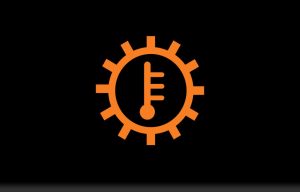
Alerts to required transmission fluid change. Neglecting may lead to shifting issues and costly repairs.
Hybrid System Warnings (Hybrid Models)
High Voltage Battery Warning

Critical alert for hybrid battery issues. Pull over immediately – continued driving may cause permanent damage.
Regenerative Braking Warning
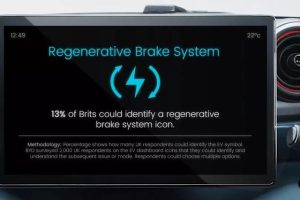
Shows reduced energy recovery during deceleration. Conventional brakes still function normally.
LED Lighting System Warnings
Adaptive Headlight Warning

Indicates fault in swiveling headlight system. Standard lighting remains but cornering illumination disabled.
Daytime Running Light Fault
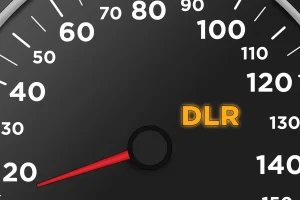
Shows DRL system malfunction. While not critical for night driving, visibility to other drivers is reduced.
Always consult your owner’s manual when warning lights appear and seek professional diagnosis for persistent warnings to maintain your Honda CR-V’s performance, safety and longevity. The vehicle’s advanced diagnostic systems provide detailed fault codes that help technicians quickly identify and resolve issues.

